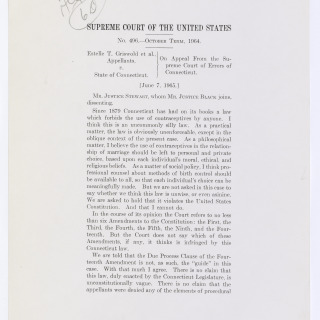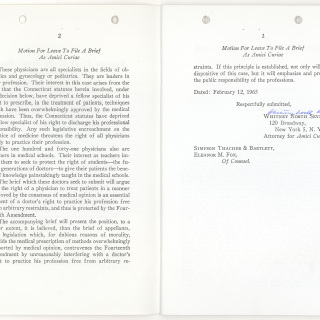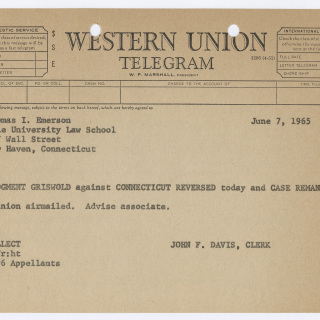Implicit Right to Privacy 1965
On November 1, 1961, Estelle Griswold opened a Planned Parenthood office in New Haven, Connecticut, knowing the center violated the state’s 1879 anti-contraception law. Police arrested Griswold and she was convicted of dispensing contraceptives to married couples. The U.S. Supreme Court, however, overturned her conviction.
The Griswold v. Connecticut decision established a constitutional right of privacy in marital relations and changed the course of American constitutional law. Justice William Douglas, writing for the majority, argued that while there is no explicit right to privacy in the Constitution, the First, Third, Fourth, and Ninth Amendments create a “zone of privacy.” He also argued that the right of privacy in marriage is “older than the Bill of Rights.”


